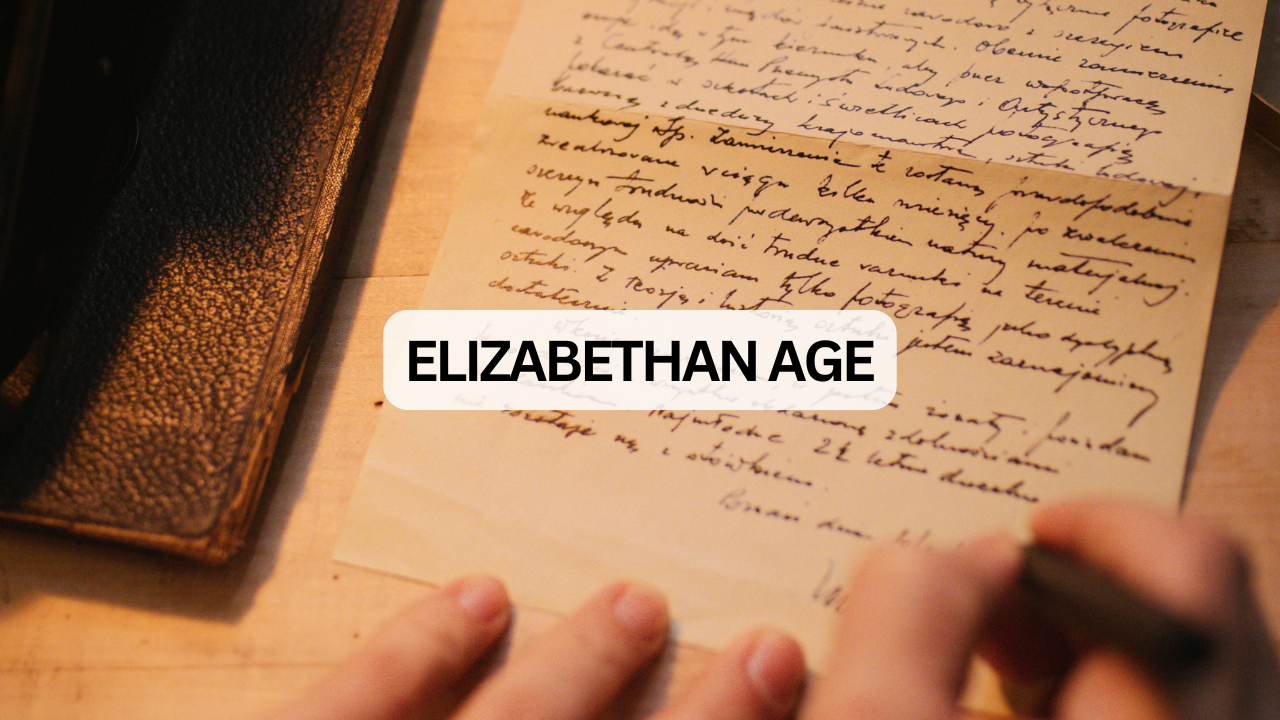Ah, the Elizabethan Age—a time when England was basking in the golden glow of its most iconic monarch, Queen Elizabeth I, and the world of English literature was thriving like never before. Think of this period as the Tudor version of a literary Renaissance. It was a time when poetry became cool, drama took center stage (literally), and a certain guy named William Shakespeare was kind of a big deal.
Let’s dive into the rich, witty, and sometimes dramatic world of Elizabethan literature.
What Was the Elizabethan Age?
The Elizabethan Age refers to the period between 1558 and 1603, during Queen Elizabeth I’s reign. England was on the rise—growing stronger politically, economically, and culturally. And what better way to celebrate this national glow-up than by creating some of the finest works of literature the world has ever seen? This was the golden age of English drama, the rise of sonnets, and the birth of modern English poetry.
Drama: The True Star of the Elizabethan Age
Elizabethan literature wouldn’t be half as famous without its theater scene. Playwrights were the rock stars of their time, and people would flock to see their plays like we’d queue for the latest Marvel movie. The key player? William Shakespeare. He didn’t just shape the English language; he basically owned the Elizabethan stage.
Shakespeare’s plays ranged from the tragic (think Hamlet, Macbeth, Romeo and Juliet) to the comedic (A Midsummer Night’s Dream, Twelfth Night), and even the historical (Henry V, Richard III). He gave us epic speeches, memorable characters, and enough quotable lines to last a lifetime. Love him or hate him, Shakespeare was the GOAT of Elizabethan drama.
But Shakespeare wasn’t the only playwright in town. Christopher Marlowe also made waves with his bold, dramatic works like Doctor Faustus, a play about a man who sells his soul to the devil for power and knowledge (we’ve all been tempted, right?). Marlowe’s work was dark, daring, and more than a little rebellious—just what the Elizabethan audience craved.
Poetry: Sonnets and More Sonnets
Aside from drama, the Elizabethan Age was obsessed with poetry, especially the sonnet. It was like the Twitter of the 16th century—short, structured, and packed with emotion. Shakespeare, of course, made the sonnet famous with his collection of 154 sonnets, exploring love, time, beauty, and more love (because why not?).
Another poet who made his mark was Edmund Spenser, best known for his epic poem The Faerie Queene. This work is basically the Elizabethan equivalent of a fantasy novel—packed with knights, dragons, and allegory. Spenser’s work wasn’t just about telling a good story, though; it was a tribute to Queen Elizabeth I herself, celebrating her reign as a time of peace and prosperity (and yes, it helped boost his career).
The Rise of Prose
While drama and poetry stole the spotlight, prose was also making its mark in the Elizabethan Age. Writers like Sir Philip Sidney and Sir Walter Raleigh (who were also adventurers, because apparently one talent wasn’t enough) wrote essays, stories, and philosophical works that influenced the way people thought about life, love, and politics.
Thomas Nashe, with his satirical works, also contributed to the rise of prose. His novel The Unfortunate Traveller is often considered one of the first picaresque novels in English, blending humor and adventure in a way that was refreshingly modern for its time.
Key Themes of Elizabethan Literature
- Humanism: Inspired by the Renaissance, Elizabethan writers placed a huge focus on human potential and individuality. They explored human emotions, ambitions, and frailties, turning everyday people into literary icons.
- Patriotism and National Identity: With England becoming a major player on the global stage, there was a sense of pride in the air. Literature celebrated this newfound strength, often praising Queen Elizabeth I as the symbol of national glory.
- The Supernatural: Ghosts, witches, and prophecies were everywhere in Elizabethan literature. Plays like Macbeth and Doctor Faustus used the supernatural to explore themes of fate, ambition, and morality. It seems the Elizabethans were as obsessed with the paranormal as we are with binge-watching spooky Netflix series.
- Love and Beauty: Ah, love! No Elizabethan work would be complete without some musings on beauty, desire, and heartbreak. The sonnet was the perfect vehicle for expressing unrequited love, and Shakespeare’s Romeo and Juliet remains the ultimate tragic love story.
Why the Elizabethan Age Still Matters
Why should we care about what people were writing 400 years ago? Well, because the Elizabethan Age shaped modern English literature. It introduced us to unforgettable characters like Hamlet and Macbeth, gave us timeless themes like ambition and love, and transformed the English language itself.
Shakespeare, Marlowe, Spenser—they didn’t just entertain their fellow Elizabethans. They laid the groundwork for the novels, plays, and poems we read today. Plus, let’s be real—who doesn’t love a good tragic hero or a soliloquy packed with existential angst?

I’m not sure exactly why but this website is loading very slow for me. Is anyone else having this issue or is it a issue on my end? I’ll check back later on and see if the problem still exists.
Spot on with this write-up, I really suppose this website needs much more consideration. I’ll in all probability be again to learn much more, thanks for that info.